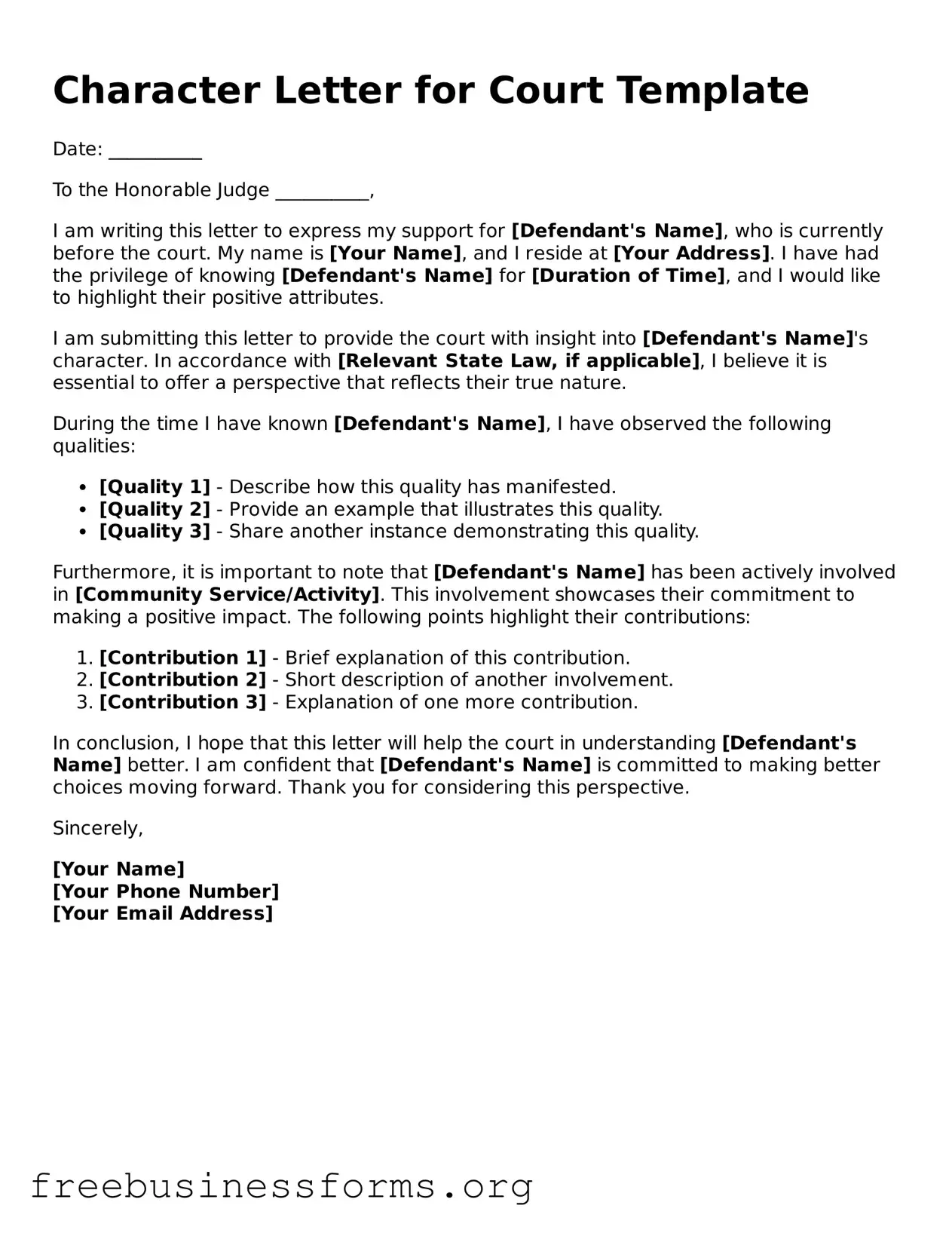Official Character Letter for Court Form
The Character Letter for Court form is a written statement submitted to the court that provides insight into a defendant's character and personal history. This letter, often penned by friends, family, or colleagues, aims to influence the court's perception during legal proceedings. It serves as a tool to humanize the individual facing charges and highlight their positive attributes.
Open Form Here

Official Character Letter for Court Form
Open Form Here

Open Form Here
or
↓ PDF File
Quickly complete this form online
Complete your Character Letter for Court online quickly — edit, save, download.